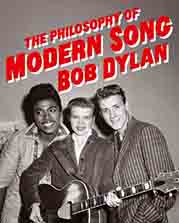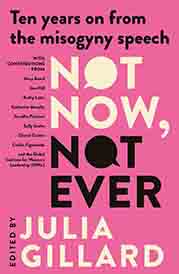Special Issue: Filmmakers on Filmmaking
Editorial
Welcome to our 2022 issue of the Global Media Journal/Australia Edition. The issue features a special section of essays by filmmakers that contextualise their creative process. The idea of filmmakers’ essays is projected as a re-examination of the work from their point-of-view. It enables a greater perspective on the ideations that lie behind the filmworks and allows for an extended reflection of their implications. This grouping of four projects and five filmmakers forms a kind of micro epistemic filmmakers community allowing for a cross-fertilisation of the ideas that underpin the images presented.
Daniel Binns, in ‘Inscribing and Encoding: The Point of Media Making’ asks and then answers the question, ‘How does it feel to make media?’ Re-calling the Roland Barthes dictum that the character of a text is that of a network, Binns’ work examines ‘…where the maker fits in the nebula of media texts, tools, and technologies.’
Ceridwen Dovey and Rowena Potts are co-founders of the Archival Futures Collective, ‘…a creative collaboration dedicated to making archival experimental films about human relationships with nature and landscapes on Earth and in outer space.’ Their extraordinary essay, The Making of the Archival Futures of Outer Space Film Quartet, charts the development of four films, Moonrise (2021); Musca (2022); Memorabilia (2022); and Requiem (2022). The films are characterised as speculative archival films, experimental ethnography, film-poems, and found footage or fragment films and ‘not-quite orphaned films’. Their intent is to find the stories from these archival fragments and re-vision the memories they conceal via a poetic process of montage and re-mediation.
In Remix as a Practice of Listening, Socorro Cifuentes discusses the use of remix as a practice of political listening. The politics are framed by socio-political resistances rather than popular culture for which remix is mainly known. Cifuentes’ project engages with ideas and practices of organisation and resistance as expressed by a variety of activists and collectives. Her idea of rearguard remix seeks to engage, learn from and recirculate the knowledge of different forms of political engagement as articulated by Silvia Rivera Cusicanqui and the idea of the rearguard researcher as proposed by Boaventura de Sousa Santos. This is an emphatic presentation of how the researcher ‘…needs to listen first instead of assuming that they must search for answers; and in the case of de Sousa Santos the rearguard researcher is committed to ‘know with’ rather than ‘know about’ (2014, p. ix).’
Our fourth film/essay features the work of filmmaker, Rob Nugent. In Consider the Roadside Picnic Place: reflections from the making of the short film, Picnic Places, Nugent casts the roadside infrastructure he calls, Picnic Places, as an assemblage of objects ‘containing multitudes’. This intriguing film project asks us to re-consider the picnic place in an alternative sense – not the usual point of respite from the always lengthy journey in the Australia outback. In his film, Nugent catapults us into a future, where the picnic place is an analogue to the satellite launch sites being developed to attain Australian ‘sovereign launch capacity’. The rather lowly picnic place is given a new ‘lease’ with this ‘incongruous connection’ and extends the geographical narrative of Australia’s outer space aspirations.
The issue also features both refereed and postgraduate papers: Binoy Kampmark’s Redirecting surveillance capitalism: Facebook and Australia’s news media bargaining code provides a cogent analysis of Australia’s failure to regulate big tech in the latest showdown between government agencies and the tech platforms (Meta, Google). Chengju Huang’s, The ideological decay and theoretical stagnation of Chinese journalism: A critique of the ‘Marxist view of journalism’ discourse makes a critical assessment of ‘Marxist journalism’ of the Chinese variety. His account suggests a kind of exercise in propaganda in the way the CCP soft-pedals the idea of a new Chinese journalism to suit the globital (digital + global) context.
Postgraduate papers by Graeme Karstaedt of Murdoch University opens up on race in the Australian media and by Jason K. Foster of RMIT University, who, in The Black Legend: Postmodernity, the Latin American politique and cinema’s role in historical revisionism charts a fascinating account of a postmodern film historiography that informs a revisionist history of the colonisation of Latin America.
The issue has our usual Australian Media Monitor contribution by Associate Professor Tim Dwyer and book reviews by John Encarnacao, Myra Gurney, Jane Scerri and Hart Cohen.
I would like to thank all the authors and reviewers for their contributions to this issue. Many thanks to co-editors, Dr Myra Gurney and Dr Antonio Castillo. It is also the case that the assistance of Roman Goik, our Webmaster, was indispensable to the publication of this issue. After 15 years as our Webmaster, Roman has now retired. All of us associated with the journal over these many years owe Roman a great debt for the work he has done in bringing our publication into its online existence.
Thanks to Roman and thanks to all.
Hart Cohen
Special Issue Refereed Articles
-
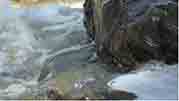
Inscribing and encoding: The point of media-making
Daniel Binns
Read Abstract Read Article
RMIT University

The making of the Archival Futures of Outer Space Film Quartet
Ceridwen Dovey
Read Abstract Read Article
Western Sydney University
Rowena Potts
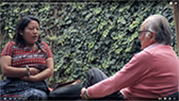
Remix as a practice of listening
Socorro Cifuentes
Read Abstract Read Article
Western Sydney University

Consider the roadside picnic place: Reflections from the making of the short film, Picnic Places
Rob Nugent
Read Abstract Read Article
Western Sydney University
Refereed Articles
-

The ideological decay and theoretical stagnation of Chinese journalism: A critique of the ‘Marxist view of journalism’ discourse
Chengju Huang
Read Abstract Read Article
RMIT University

Redirecting surveillance capitalism: Facebook and Australia’s news media bargaining code
Binoy Kampmark
Read Abstract Read Article
RMIT University
Postgraduate Submissions
-

The Black Legend: Postmodernity, the Latin American politique and cinema’s role in historical revisionism
Jason K. Foster
Read Abstract Read Article
RMIT University

Race in the Australian media: Present approaches and opportunities for change
Graeme Karstaedt
Read Abstract Read Article
Murdoch University
Book Reviews
-
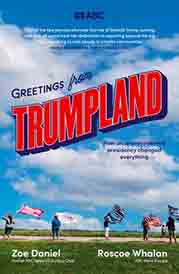
Greetings from Trumpland: How an unprecedented presidency changed everything
Myra Gurney
Read Review
Western Sydney University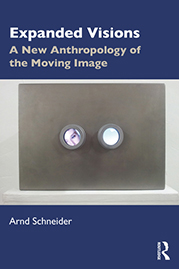
Expanded Visions: A New Anthropology of the Moving Image
Hart Cohen
Read Review
Western Sydney University

